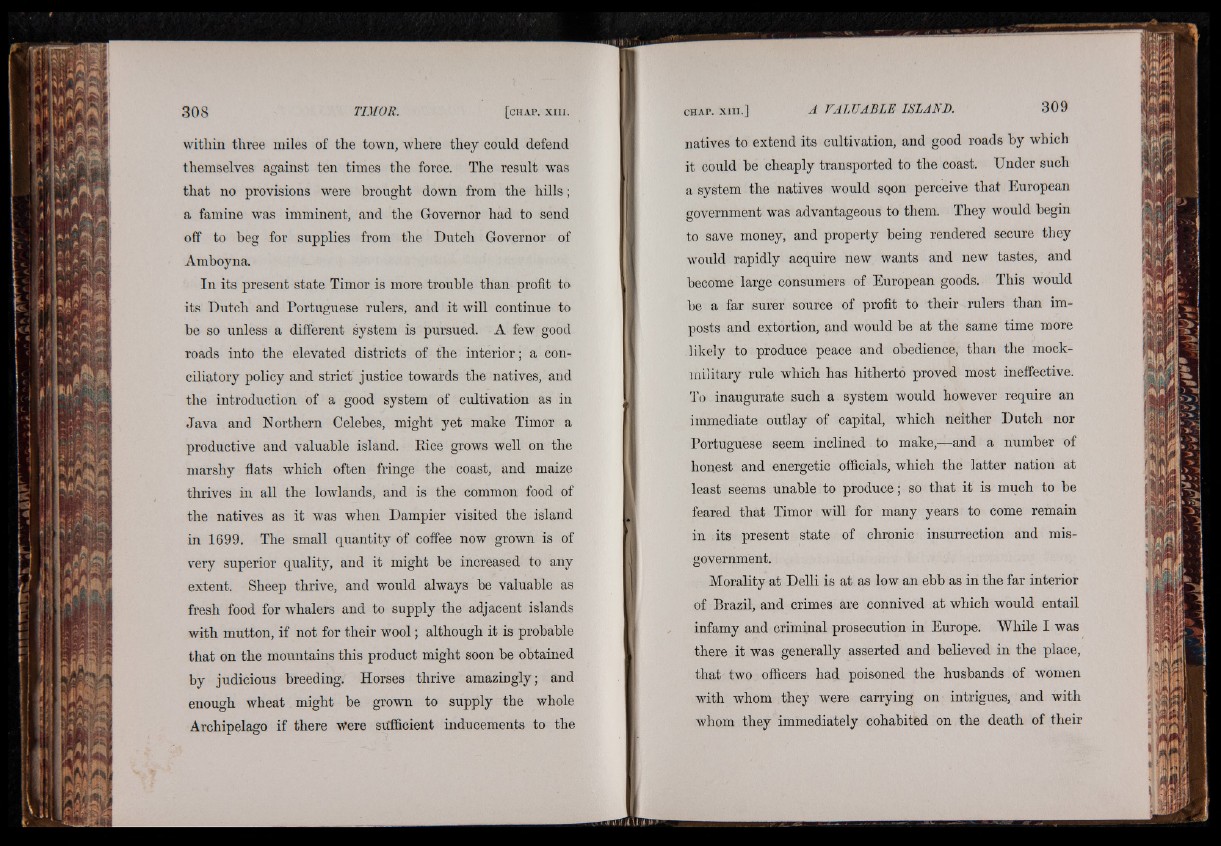
within three miles of the town, where they could defend
themselves against ten times the force. The result was
that no provisions were brought down from the hills;
a famine was imminent, and the Governor had to send
off to beg for supplies from the Dutch Governor of
Amboyna.
In its present state Timor is more trouble than profit to
its Dutch and Portuguese rulers, and it will continue to
be so unless a different system is pursued. A few good
roads into the elevated districts of the interior; a con-,
ciliatory policy and strict justice towards the natives, and
the introduction of a good system of cultivation as in
Java and Northern Celebes, might yet make Timor a
productive and valuable island. Eice grows well on the
marshy flats which often fringe the coast, and maize J O '
thrives hi all the lowlands, and is the common food of
the natives as it was when Dampier visited the island
in 1699. The small quantity of coffee now grown is of
very superior quality, and it might be increased to any
extent. Sheep thrive, and would always be valuable as
fresh food for whalers and to supply the adjacent islands
with mutton, if not for their wool; although it is probable
that on the mountains this product might soon be obtained
by judicious breeding. Horses thrive amazingly; and
enough wheat might be grown to supply the whole
Archipelago if there Were sufficient inducements to the
natives to extend its cultivation, and good roads by which
it could be cheaply transported to the coast. Under such
a system the natives would SQon perceive that European
government was advantageous to them. They would begin
to save money, and property being rendered secure they
would rapidly acquire new wants and new tastes, and
become large consumers of European goods. This would
be a far surer source of profit to their rulers than imposts
and extortion, and would be at the same time more
likely to produce peace and obedience, than the mock-
military rule which has hitherto proved most ineffective.
To inaugurate such a system would however require an
immediate outlay of capital, which neither Dutch nor
Portuguese seem inclined to make,—and a number of
honest and energetic officials, which the latter nation at
least seems unable to produce; so that it is much to be
feared that Timor will for many years to come remain
in its present state of chronic insurrection and mis-
government.
Morality at Delli is at as low an ebb as in the far interior
of Brazil, and crimes are connived at which would entail
infamy and criminal prosecution in Europe. While I was
there it was generally asserted and believed in the place,
that two officers had poisoned the husbands of women
with whom they were carrying on intrigues, and with
whom they immediately cohabited on the death of their